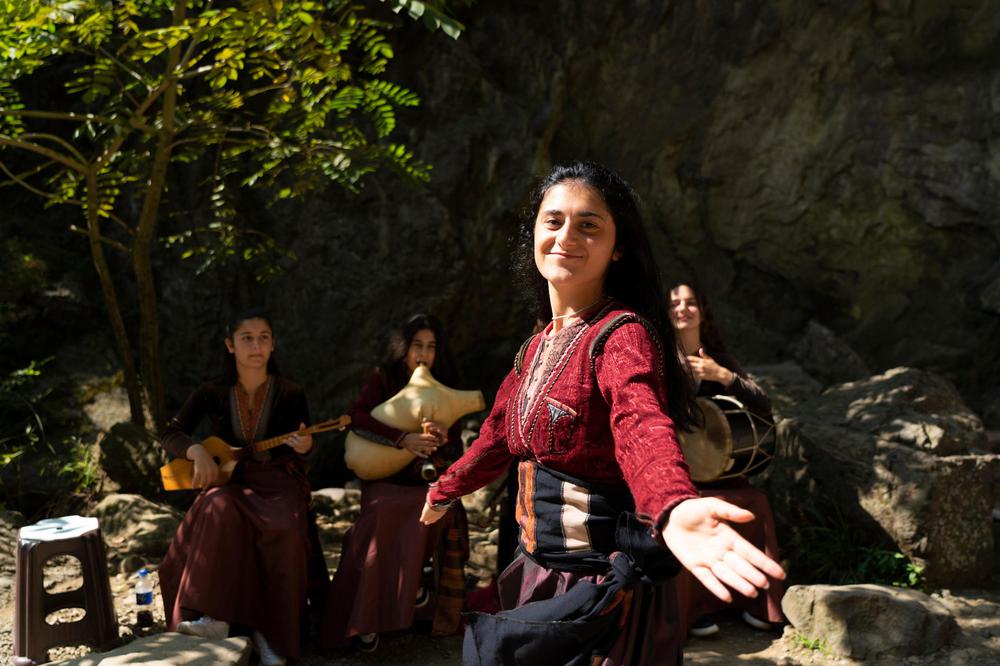Georgia, a nation at the crossroads of Europe and Asia, is celebrated for its colorful and diverse folk festivals. These festivals are a vivid expression of the country's rich cultural heritage and offer a unique window into Georgian traditions. From the masquerade antics of Berikaoba to the historical reverence of Alaverdoba, Georgian folk festivals are a dynamic blend of ancient customs, religious celebrations, and communal gatherings. This article delves into these fascinating cultural events, providing insights into their origins, customs, and contemporary significance.
Berikaoba: Theatricality and Masquerade
Berikaoba, an enthralling folk festival, is renowned for its masquerade and theatrical performances. This springtime event is steeped in ancient traditions, where participants don masks and costumes, representing characters from Georgian folklore and mythology. These impromptu performances, filled with humor and satire, are not just for entertainment but also serve as a social commentary, reflecting the community's values, challenges, and historical narratives.
Alaverdoba: A Fusion of Faith and Festivity
Alaverdoba, a significant festival with deep historical roots, blends religious and cultural traditions. Celebrated in September, this festival spans several weeks and is particularly prominent in the region of Kakheti. It commences with religious observances linked to the Alaverdi Cathedral, an iconic religious edifice in Georgia. Following these solemn rituals, Alaverdoba transforms into a vibrant fair, where folk music, dance, horse racing, and wrestling are prevalent. This festival is a testament to the harmonious blend of religious devotion and cultural celebration in Georgian society.
Tbilisoba: A Tribute to the Capital’s Cultural Mosaic
Tbilisoba, initiated in the late 20th century, is a celebration of Tbilisi's rich history and cultural diversity. Held in October, it features a medley of activities including concerts, traditional performances, and exhibitions showcasing local crafts and gastronomy. This festival is a vibrant platform for various ethnic communities to display their unique cultural identities, fostering a spirit of unity and cultural appreciation.
Giorgoba: Honoring the Patron Saint George
Giorgoba, celebrated on November 23rd, pays homage to Saint George, a figure of immense reverence in Georgia. The festival, marked by church services and communal gatherings, has a strong religious undertone. In rural regions, Giorgoba aligns with the end of the agricultural season, incorporating elements of harvest celebrations, thereby reflecting the enduring interplay between religious practices and folk traditions in Georgian life.
Lomisoba: A Highland Celebration of Community and Faith
Lomisoba, held in late spring, is a testament to the enduring traditions of Georgia’s highland communities. Centered around the Lomisi Monastery, this festival is a blend of religious pilgrimage and communal celebration, featuring local customs, feasting, and folk performances. Lomisoba exemplifies the resilience and unity of Georgia's mountainous regions, showcasing their commitment to preserving traditional ways of life.
The Significance of Folk Festivals in Georgian Tourism
Georgian folk festivals are integral to the nation's tourism appeal, offering an authentic glimpse into its cultural fabric. These events attract visitors keen on experiencing Georgia’s traditional music, dance, and cuisine. Tour operators often include these festivals in travel itineraries, highlighting their significance in understanding Georgian culture and contributing to the local economy by drawing international tourists.
Conclusion: The Essence of Georgian Culture through Festivals
Georgian folk festivals, from the theatricality of Berikaoba to the devout celebrations of Alaverdoba and Giorgoba, are vibrant expressions of the nation's heritage. Each festival narrates a part of Georgia's cultural story, showcasing its history, religious beliefs, and community values. These festivals are crucial in preserving Georgian traditions, offering a captivating experience for locals and tourists alike. They stand as a testament to the rich, multifaceted nature of Georgian culture, inviting everyone to partake in their celebration of history, faith, and community spirit.

 Festivals and Events
Festivals and Events
 National Costumes of Georgia
National Costumes of Georgia
 Georgian Handicrafts
Georgian Handicrafts
 Chichilaki: The Heart of Georgia’s Christmas Tradition
Chichilaki: The Heart of Georgia’s Christmas Tradition




